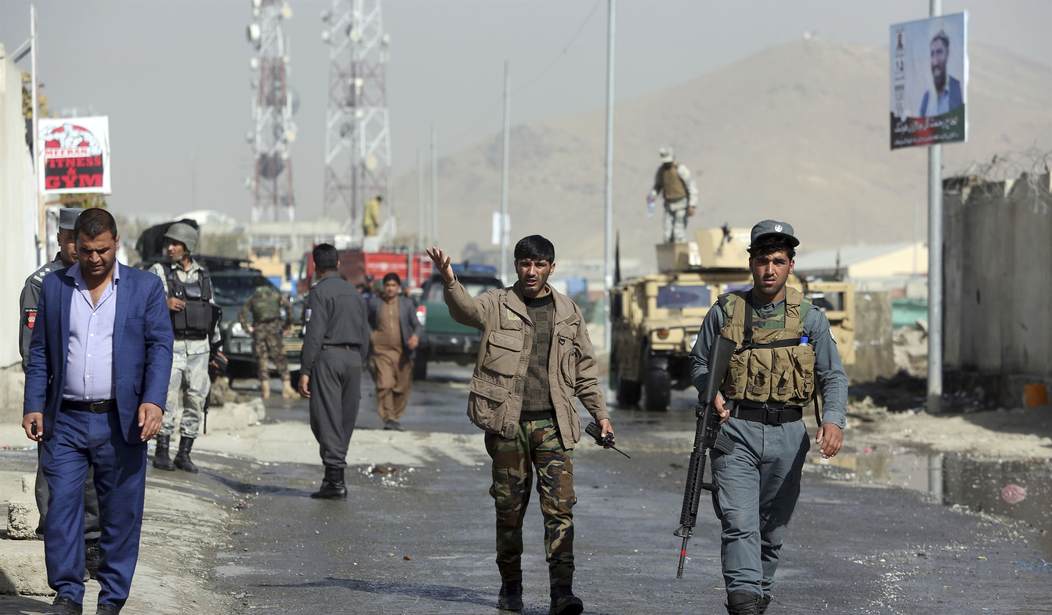It was recently revealed that Secretary of State Anthony Blinken sent an 8-page proposal to the Afghan government which he argued would “jump start” peace talks with the Taliban. Given the diplomatic, political, and military history of the Afghan war since 2001, however, the most likely result of this proposal would be to squander our chance to end this disastrous war.
The Blinken plan sets out very ambitious goals and addresses a detailed set of political and military objectives. It calls for the dissolution of the current government in lieu of a “Transitional Peace Government” including figures from both the Taliban and Ghani government. It requires the establishment of a new constitution, new parliament, judiciary, new elections, and “sub-government structures.” It also requires the establishment of a ceasefire between the warring parties.
It is difficult to overstate the level of difficulty such a comprehensive set of objectives entails. As a means of direct comparison, however, it is useful to look back at the last time the U.S. authored a proposal to establish an Afghan government, constitution, and election. An analysis of those results does not bode well for the potential success of Blinken’s version.
Following 9/11, President Bush ordered the U.S. military “to disrupt the use of Afghanistan as a terrorist base of operations, and to attack the military capability of the Taliban regime.” By December the Taliban had been routed and al Qaeda had been scattered. To establish a new government in Afghanistan that would be friendly to the United States, the Bush Administration convened a meeting of likeminded allies in Bonn, Germany.
The result was the Bonn Agreement of 2001, consisting of six pages of text. This agreement directed the establishment of an interim government by December, 22nd 2001, and required that U.S.-picked government to select their own transitional government within six months. Eighteen months after its establishment, the transitional government would approve a constitution and the Afghan people would elect a government of their choosing six months following the constitution’s passage. It took a 35-member hand-picked team a year to produce the first draft of the constitution.
Recommended
In sum, it took three full years from the passage of the Bonn Agreement to the inauguration of Hamid Karzai and the first formal Afghan government. All of that was done with the United States having nearly complete control of the process and the selection of key leaders. The Taliban were not involved. The Taliban insurgency would not start in earnest until late 2005.
The complicated three-year process of the Bonn Agreement was child’s play compared to what is now being proposed by the Biden Administration. Using history as a guide, it is not even within the realm of possibility to accomplish the objectives of the Blinken letter in anything less than a multi-year timeframe – if it can be accomplished at all.
In 2001 the war was over and the Taliban was utterly shattered as a functioning political and military entity. Today, the Taliban has a sophisticated political organization and militarily has the upper hand. In 2001 the United States effectively called the shots, which most of the Afghan participants were willing to carry out. Today the members of the Afghan government side have a strong sense of independence from Washington – and the Taliban are the strongest they’ve been since the invasion.
In summary, if the Biden Administration tries to compel adherence to this proposed new road map as a prerequisite of our military withdrawal, the effective result will be to condemn our war effort to yet more years of futility. The only logical course of action for the United States now is to adhere to the current timeline of a full military withdrawal by May 1st.
The U.S. can and should continue to play a constructive role in Afghanistan both diplomatically and economically. For some number of additional years, we could pledge to provide financial support to the government. We should offer whatever diplomatic services may be desired by both warring sides and encourage them to reach a rapid, Afghan-derived solution. What we should not do, however, is keep troops on the ground beyond May 1st.
As a final note, it is crucial to understand that the claim made by some that an American military withdrawal would increase the risk of a new 9/11-style attack is neither accurate nor valid. America has the world’s most robust intelligence networks and an unrivaled ability to launch targeted strikes against direct threats to our country no matter where in the world they originate. As evidenced by the raid which took out Osama bin Laden, we do not need a permanent garrison of troops on the ground in the target country to take out a threat to America.
Trying to force a new, comprehensive peace agreement on the warring parties in Afghanistan – and predicating our military withdrawal on its successful attainment – is a recipe for extending our already two-decades of failure and to virtually guarantee the war continues without pause or end. President Biden must prioritize accomplishing the realistically attainable – however messy it may be – and withdraw from Afghanistan.
Daniel L. Davis is a Senior Fellow for Defense Priorities and a former Lt. Col. in the U.S. Army who deployed into combat zones four times. He is the author of “The Eleventh Hour in 2020 America.” Follow him @DanielLDavis1.

























Join the conversation as a VIP Member